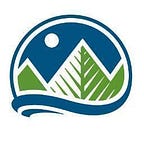On being outdoorsy, and what that really means
Editor’s note: In this blog, the author explores the use of the term “outdoorsy” and whether it should only apply to experienced, backcountry adventure seekers. The piece was originally published on the Treelines blog. It is reproduced here with the author’s permission.
By Mandi Casolo
When I was in high school, in New England, myself and my friends were outdoorsy. We sought out lakes, woods, and ocean shorelines instead of shopping malls and bars. For my 19th birthday, I wanted to camp. I asked my friends to drive to the beach, pitch a tent, and roast marshmallows over a Dura-log. For my 23rd birthday, I hiked the tallest mountain closest to my home state, instead of buying a new dress and club hopping. I didn’t know about Leave No Trace. Or about proper food storage. Or how to dress or what to pack to venture outside. I simply put on some tennis shoes and a pair of jeans, carried a plastic water bottle in my hand, or nothing at all, and went for a hike. All I knew was that I liked to be outside, and that was all I needed to know.
It wasn’t until I moved to Colorado that I was exposed to a particular lifestyle known as ‘outdoorsy.’ Most people move to Colorado for access to the mountains, rivers, and forests, so it’s no surprise that since I’ve moved to Colorado, I’ve become more active outdoors. You might say that I “Honey, I Blew Up the Kid” all the things I did in New England. And yeah, everything in Colorado is on a bigger scale, literally, than it is in Connecticut. My hikes are longer, higher in elevation, sometimes harder for this reason, my campsites more remote, the clothes I wear might be capilene instead of cotton. The reaction, “You’re so outdoorsy!” is now more and more common. So I’ve been thinking about this term a lot lately, and how we use it.
Outdoorsy sounds…kind of cutesy by itself. But a lot of times, it’s imbued with a bit of awe or disbelief like when we express admiration for someone we think is adventurous or risky. We use it to describe people as part of the outdoor recreation culture or lifestyle too, like, “They’re a super outdoorsy family,” or to identify someone as not it, like “So-and-so isn’t exactly outdoorsy.” But I think this term can too easily create an illusion of experience, and even exclude those who are new to outdoor recreation, or have limited access to it. Unfortunately, “outdoorsy” has been seized by recreation consumer culture, crafted into a curated lifestyle that makes those of us who don’t own a Mountain Hardwear puffy, don’t live out of a van, and didn’t take a gap year in Patagonia, feel kind of left out.
… I think this term can too easily create an illusion of experience, and even exclude those who are new to outdoor recreation, or have limited access to it
For me, to be outdoorsy doesn’t mean that a person is fearless, or that she has the latest and greatest gear–or any “gear” at all. Outdoorsy definitely doesn’t substitute for actual skills like wilderness first response, ethical conduct like Leave No Trace, or years of training or experience. And finally, being outdoorsy doesn’t mean that any one person is inherently more likely to walk longer, try harder, or be open to new experiences–anyone can do these things. Too many times, I’ve heard someone turn down an outdoor experience, and say, “I’m not sure I’m outdoorsy enough.” This makes my heart hurt because I’d like to believe that being outdoorsy, at it’s most basic level, simply means that you enjoy being outside. We are all strong and capable, afraid and nervous, cautious and adventurous, and we can all be outdoorsy if we want to be.
Mandi Casolo is the author of the Treelines blog and a communications intern in The Wilderness Society’s Denver office.
